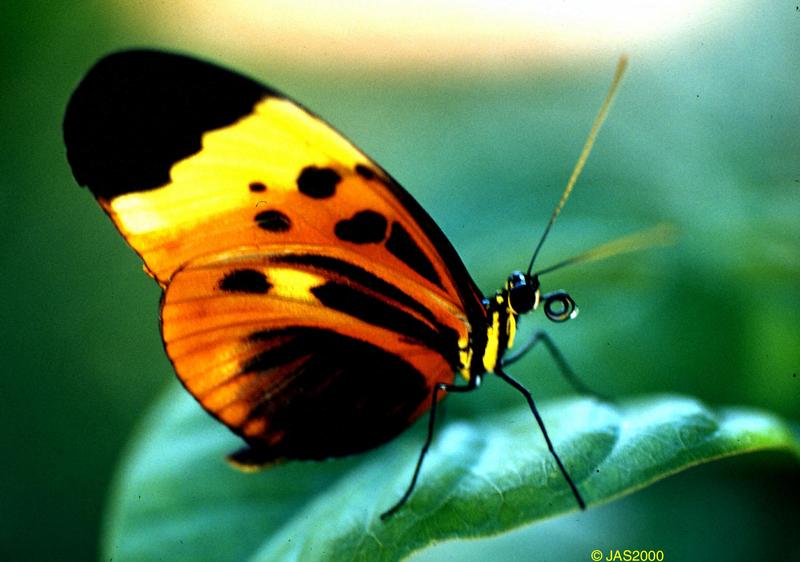|
| Query: Butterflies | Result: 226th of 2945 | |
(Butterflies) File 1 of 4 - EueidesIsabella2.jpg - Isabella's Longwing (Eueides isabella)
| Subject: | (Butterflies) File 1 of 4 - EueidesIsabella2.jpg - Isabella's Longwing (Eueides isabella)
| | Poster: | Jose A. Sierra Jr. (jasierra@iname.com)
| |

| File size : 377788 bytes
File date : 2000:06:16 14:36:35
Resolution: 2449x1721
Jpeg process : Progressive
Posted Newsgroups: alt.binaries.pictures.animals,alt.binaries.test
Posted Date: Sun, 28 May 2000 03:55:49 GMT |
Isabella's Longwing (Eueides isabella)
From: jasierra****@iname.com (Jose A. Sierra Jr.)
Subject: (Butterflies) File 1 of 4 - EueidesIsabella2.jpg (0/2)
Date: Sun, 28 May 2000 03:55:24 GMT
I have identified these butterflies as well as I could with some rather
sketchy informational pamphlets. If you feel that the names are wrong
feel free to contact me with your information. I am not an emtomologist
and there are millions of lepidoptera in the World.
^o^
Animal Pictures Archive for smart phones
^o^
|
|
|